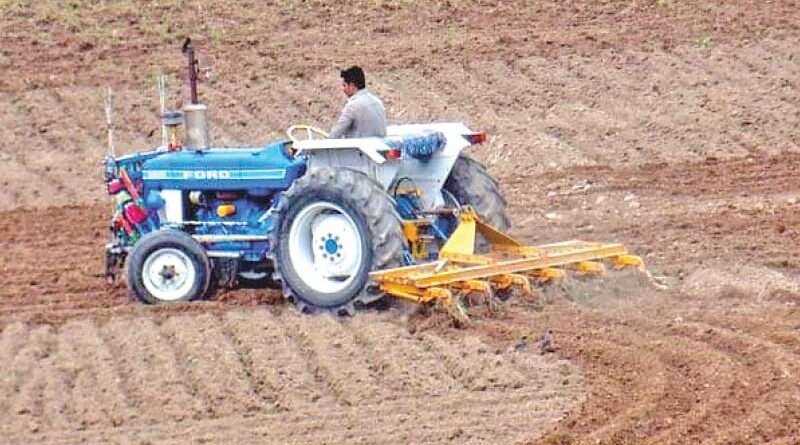FAO Champions Eco-Friendly and Nutritious Farming Practices to Address Pakistan’s Food Security
|
Getting your Trinity Audio player ready...
|
Introduction
As Pakistan grapples with growing challenges in food security, the Food and Agriculture Organization of the United Nations (FAO) is taking proactive steps to support local governments with initiatives that focus on sustainable and nutritious agricultural practices. The FAO is dedicated to improving food systems in Pakistan by boosting productivity, enhancing nutrition, and creating resilient food systems that ensure a reliable supply of food for its population.
In an exclusive interview with APP, FAO Country Representative Florence Rolle explained how her organization is contributing to food security in Pakistan through various initiatives aimed at transforming the agricultural landscape. These efforts are centered on eco-friendly practices that focus on soil health, water management, and biodiversity to improve agricultural output while ensuring the long-term sustainability of Pakistan’s food systems.
FAO’s Role in Addressing Food Security in Pakistan
Sustainable Agriculture: The Foundation of FAO’s Strategy
The FAO’s approach to improving food security in Pakistan revolves around sustainable agricultural practices that not only address the immediate need for food but also focus on improving the quality of food and the resilience of the food system. Rolle stated that these efforts aim to ensure that Pakistanis have access to not just enough calories, but also to healthier, more nutritious diets.
The FAO’s initiatives are designed to meet the nutritional needs of the population, especially in rural areas where access to diverse and nutritious foods is limited. With a focus on long-term sustainability, FAO is helping local farmers adopt practices that protect the environment, promote soil fertility, and manage water resources more efficiently.
Promoting Eco-Friendly Farming Practices
One of the main strategies FAO employs is promoting eco-friendly farming methods that improve productivity and ensure the sustainability of Pakistan’s agriculture. These eco-friendly practices are aimed at increasing crop yields while enhancing the quality of the produce. These techniques not only help farmers increase productivity but also preserve the natural resources crucial to Pakistan’s agricultural future.
Among these practices, improving water management, protecting soil health, and encouraging biodiversity play a significant role in creating more resilient farming systems. By enhancing soil fertility and ensuring optimal water usage, the FAO is helping farmers cultivate more food with fewer resources. Additionally, these practices help mitigate environmental damage and reduce the harmful impact of traditional farming methods, which often rely heavily on chemical inputs and unsustainable resource use.
Empowering Small-Scale Farmers
Small-scale farmers are at the heart of Pakistan’s agricultural production, and their contribution to food security cannot be overstated. However, many of these farmers still rely on traditional farming methods that are often inefficient and unsustainable. FAO is working closely with small farmers to help them transition to more modern, sustainable practices.
Through various programs, FAO provides small-scale farmers with the necessary resources, training, and knowledge to adopt these new methods. By offering financial and technical support, FAO enables these farmers to implement eco-friendly agricultural techniques that boost both their productivity and environmental sustainability. FAO’s work with small farmers also focuses on empowering women in agriculture, ensuring that they have access to the resources and education they need to improve food security in their communities.
Boosting Crop Yields and Nutritional Value
FAO’s strategy goes beyond just increasing the quantity of food produced—it also emphasizes improving the quality of food to meet nutritional needs. While Pakistan’s agriculture is primarily focused on producing staple foods like wheat, rice, and sugarcane, FAO encourages the diversification of crops to include nutrient-dense foods such as fruits, vegetables, legumes, and nuts. This helps ensure that farmers not only produce more food but also provide a wider variety of nutrient-rich foods to their local communities.
The FAO’s approach encourages farmers to shift from monoculture farming to more diverse crop systems that increase the availability of micronutrients essential for good health. By introducing crop rotation and intercropping, FAO helps increase soil fertility, reduce pests, and improve overall farm productivity.
Food Safety and Standards
Collaboration with Local Governments
Ensuring food safety is another critical component of FAO’s work in Pakistan. Food safety standards are essential to prevent foodborne illnesses and ensure that the food produced and consumed in Pakistan is safe and nutritious. FAO collaborates with local governments to establish and strengthen food safety standards, offering technical assistance on good agricultural practices, safe post-harvest handling, and hygienic food processing methods.
Rolle highlighted that food safety is a major concern for both consumers and producers in Pakistan. FAO’s technical support includes helping farmers and food producers understand the best practices for growing, storing, and handling food safely to prevent contamination and spoilage. These efforts help ensure that Pakistan’s food systems are both safe and efficient.
Education on Nutrition and Safe Consumption
In addition to improving food production practices, FAO also works with local communities to raise awareness about the importance of nutrition and safe consumption practices. Educating consumers about the nutritional value of food and the importance of a balanced diet is a cornerstone of FAO’s efforts to build healthier diets in Pakistan.
By focusing on nutrition education, FAO seeks to change people’s dietary habits and improve their understanding of how food choices can impact their health. FAO’s outreach programs teach consumers about safe food handling, the benefits of consuming diverse, locally grown crops, and the importance of eating nutrient-rich foods to promote long-term health.
MUST READ:
Challenges in Achieving Food Security
Environmental and Economic Challenges
Pakistan’s agriculture faces numerous challenges, including limited access to modern farming technologies, inadequate water management systems, and the impacts of climate change. These challenges make it difficult for farmers to meet the growing food demand while ensuring sustainability. FAO’s initiatives aim to address these issues by introducing innovative solutions and supporting farmers in adapting to changing environmental conditions.
Additionally, the economic challenges faced by many farmers, including access to credit, fluctuating market prices, and high input costs, further complicate the task of improving food security. FAO’s programs work to mitigate these challenges by providing financial support, training, and market access to help farmers improve their livelihoods.
Climate Change and Water Scarcity
The changing climate is another significant threat to food security in Pakistan. With unpredictable rainfall patterns, rising temperatures, and frequent droughts, agriculture in Pakistan is becoming increasingly vulnerable to climate-related disasters. FAO’s programs aim to build climate resilience by promoting water-efficient farming practices, drought-resistant crops, and adaptive strategies to mitigate the effects of climate change.
Conclusion
FAO’s commitment to promoting sustainable, eco-friendly, and nutritious farming practices is critical to addressing the growing food security challenges in Pakistan. Through its various programs and initiatives, FAO is helping Pakistan improve its agricultural productivity, ensure food safety, and enhance nutrition. By empowering small-scale farmers with the tools and knowledge to adopt sustainable practices, FAO is working towards building a more resilient and sustainable food system in Pakistan.
The organization’s work is also paving the way for a future where Pakistanis have access to a wider variety of nutritious foods, ensuring that they not only meet their caloric needs but also enjoy better health and quality of life.
FAQs
- What is FAO’s role in improving food security in Pakistan? FAO works to improve food security in Pakistan by promoting sustainable agriculture, increasing crop yields, and ensuring the availability of nutrient-rich foods.
- How does FAO support small-scale farmers in Pakistan? FAO supports small-scale farmers by providing resources, training, and financial assistance to help them adopt sustainable and eco-friendly farming practices.
- Why is food safety important in Pakistan’s agriculture? Food safety is crucial to prevent foodborne illnesses and ensure that the food produced is safe for consumption. FAO collaborates with local governments to develop and implement food safety standards.
- What kind of agricultural practices does FAO promote? FAO promotes eco-friendly practices such as improved water management, soil health management, and biodiversity conservation, all aimed at making agriculture more resilient and sustainable.
- How is FAO addressing the impact of climate change on agriculture in Pakistan? FAO helps farmers adapt to climate change by promoting drought-resistant crops, water-efficient practices, and climate-resilient farming techniques to mitigate environmental risks



